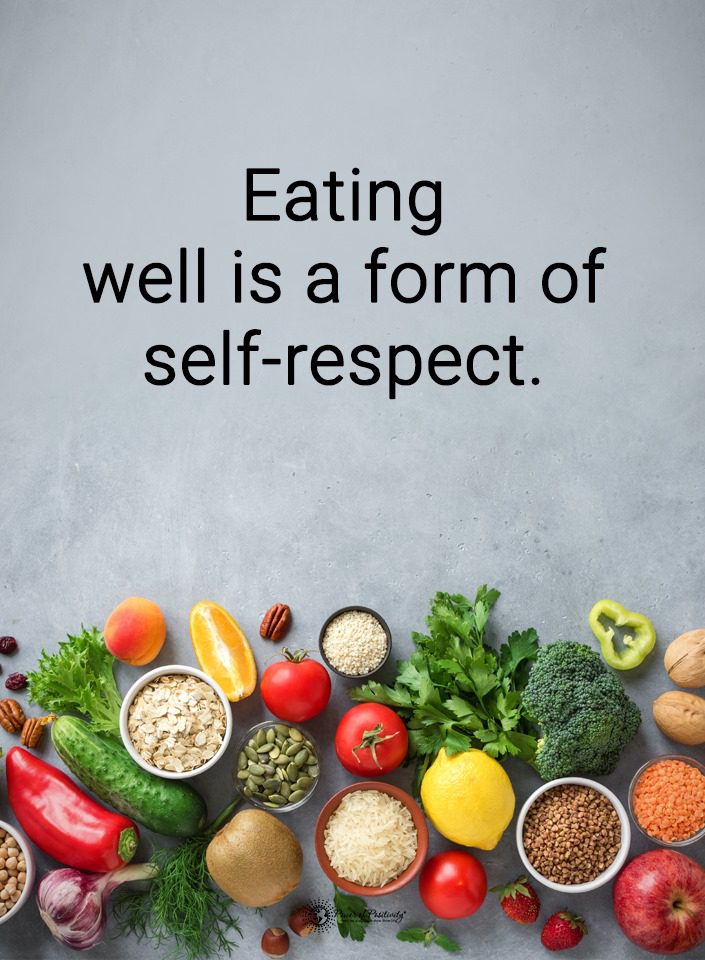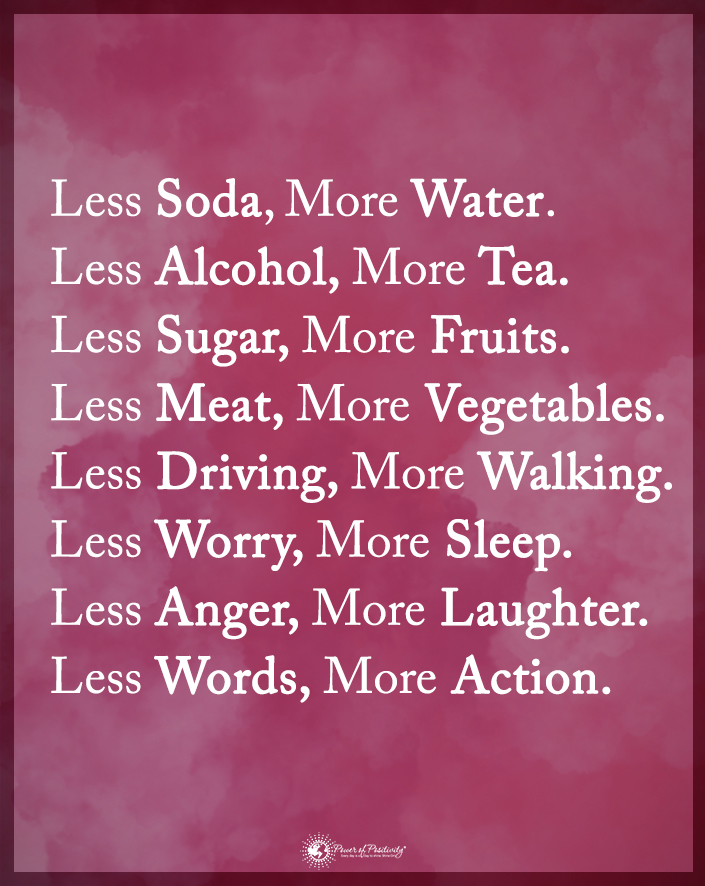For years, a common trend was that you could stay healthy if you exercised a lot, even if you were eating unhealthy foods. It turns out this was terrible advice. Researchers are now saying all the exercise in the world is no match for poor eating habits. If your diet consists of sugary, fatty foods, you’re at risk for heart disease and certain cancers. If you’re struggling with poor eating habits, here are 12 ways to stop eating unhealthy.
What did the study find?
According to a recent study, high levels of exercise can’t offset the destructive effects of a poor diet. The participants with a good quality diet and a good amount of activity reduced their mortality risk by 17%. They had a 27% lower risk of certain types of cancers and a 19% lower risk of heart disease. In other words, to stay healthy and live longer, you must eat well and stay active. Trying to outrun your poor eating habits by exercising a lot won’t work.
What are the dangers of dieting?
You might want good eating habits but need to lose weight. Should you go on a diet? Typically, diets are ineffective long-term. You may lose a few pounds the first couple of weeks, but when you go off the diet, you’ll likely gain back what you lost, plus more. Most of the time, the weight you lost was only water weight. Diets can be dangerous to your mental health and your physical health. The downsides of too restrictive of a diet program are listed below.

1. Unhealthy eating and fad diets slow down your metabolism:
Your metabolism burns calories and gives you energy. When you don’t eat enough calories, your metabolism slows down. It stops weight loss because your body focuses on maintaining fat for energy. You may try to exercise more, but eventually, your metabolism will plateau, and you’ll get discouraged. It’s best to exercise and eat healthy foods to keep your metabolism burning calories. To lose one pound a week, remove five hundred calories daily from your diet and exercise regularly.
2. You could gain weight after you stop dieting:
Diets are short-term affairs that focus on the extremes. Dieting doesn’t teach you good eating habits or portion control. You fall back into your bad eating habits as soon as you stop the diet.
3. Unhealthy eating might mean missing out on minerals and vitamins:
It is never wise to eliminate a food group. When you take away a food group, you miss out on the minerals and vitamins your body needs to function correctly. You may not realize the harm dieting does to your body until you’re older. Older women with osteoporosis are often those who are heavy dieters. Cutting out Vitamin D and calcium could result in brittle bones when you’re older. Eating high protein puts stress on your kidneys. There have been cases of acute kidney failure due to high protein diets.
4. Fad diets and false wording:
Some diets sound so good for you. Who doesn’t want to “detox” and “cleanse” your body? The fact is, your body can detox itself. Your intestines already cleanse your body using fiber and water. Your liver naturally detoxes your body. Beware wording with promises like “quick weight loss.” Rapid weight loss isn’t healthy and rarely long-lasting. Losing weight too quickly makes you feel weak. You often get dehydrated or constipated.
5. Causes discouragement:
Diets make promises they can’t keep and force you to feel like you failed if you don’t lose weight. Some diets use scare tactics telling you that you must eat one food group to lose weight. Don’t fall for the lies.
What are good eating habits?
If you want to stop eating unhealthy foods, the keyword for you is balance. Eat a balanced diet and exercise are the best practices for good health and longevity. It almost sounds too simple. However, the CDC estimates that eighty percent of all cardiovascular diseases, premature heart disease, and strokes are preventable. Life habits such as a healthy diet and regular exercise are essential.
12 Ways to Stop Eating Unhealthy
Try adding one or two of these good eating habits to your daily routine, then add another. Rinse and repeat. Before long, you will have an entire toolkit of good eating habits.
1. Start the day with healthy food
Start the day off with healthy foods. When you begin your day with healthy foods, you’re more likely to not binge on junk food later in the day. A healthy breakfast with some protein will help you feel full and satisfied. Here are a few healthy breakfast ideas:
- Oatmeal with fruit and chia seeds
- Eggs with cheese and veggies
- Breakfast smoothie made with yogurt, fruit, hemp seeds, or nut butter
- Whole grain pancakes with carrots, banana
2. Stop and analyze why you are eating unhealthy things
If you crave certain foods, ask yourself why you want to eat them now. Are you hungry, or are you simply bored? Do you want to eat because you’re feeling sad? Examining your feelings about eating is a great way to stop eating unhealthy foods. It helps you learn to deal with your emotions instead of turning to food.
3. Plan ahead to avoid unhealthy eating situations
Create a menu. Make a shopping list according to your menu. Be sure to buy everything you need for your meals. You won’t have the urge to eat fast food for dinner if you’re tired. If you don’t like to cook, keep it simple. Plan to make four ingredient dinners. Strive to have healthy protein, one or two vegetables, and whole grain carbohydrates for each meal. Meal ideas could be
- Ground turkey burgers on a whole wheat bun with pickles and mayonnaise, salad, and sweet potato fries
- Grilled chicken, greens beans, roasted asparagus, and brown rice
- Fish tacos topped with greens, chopped sweet peppers, cheese, and black beans.
- Grilled salmon, salad, roasted broccoli, and brown rice
4. Keep healthy snacks available
Good eating habits only happen when you have healthy foods at your fingertips. So keep your pantry and fridge well stocked with nuts, seeds, popcorn, low-sugar granola bars, yogurt, and fresh fruits. The more healthy foods you have, the easier it’ll be to avoid eating junk foods.
5. Chew gum if you’re hungry
One way to stave off hunger is to chew gum. It’s an excellent way to distract yourself from snacking. There’s new chewing gum in town. It’s vegan and kosher and has no artificial flavors, colors, or sweeteners. It’s a better choice than sugar-free or sugary chewing gum. Most stores carry this all-natural chewing gum.

6. Eat enough protein
Protein fills you up. It keeps you feeling satisfied longer and increases your body’s production of peptides, a hormone in your gut that makes you feel full longer. It also reduces ghrelin, a hunger hormone. Protein also speeds up your metabolism. Healthy proteins include
- Fish
- Lean meats
- Legumes
- Dairy products
- Nuts and seeds
7. Drink lots of water (you’ll feel fuller and encourage better eating habits)
Water is the healthiest choice when you’re thirsty. Avoid energy drinks, sugar sodas, and sweetened coffee drinks. Diet drinks are low in sugar, but they may increase your appetite. Fruit juices give you minerals and vitamins, but they are extra calories you might not need. Quench your thirst with cold water.
8. Avoid buying processed foods
Skip buying overly-processed foods. They lack vitamins and minerals. Many of them contain a lot of additives, chemicals, dyes, and preservatives. Processed foods you want to avoid include
- Hot dogs
- Chips
- Cookies
- Frozen pizza
- Deli meats
- White bread
Some minimally processed foods may be okay. These foods are bagged or packaged but lack additives and other chemicals. Examples of minimally processed foods that are safe to eat include:
- Bagged salads
- Frozen vegetables
- Frozen fruits
- Milk
- Cheeses
- Rice and other whole grains
- Flours
- Eggs
9. Stock your freezer
Another way to stop eating unhealthy foods is to keep healthy frozen foods on hand for quick meal preparation. A wide assortment of meat, frozen veggies, and frozen fruits also saves you money. Stock up on
- Frozen fruits: Mixed berries, strawberries, or mangos are great for smoothies.
- Frozen brown rice: Quick preparation rice packets save you time when cooking.
- Frozen meats: Break down meat packages from the store in the correct amount you need and put them in freezer zip loc bags.
- Frozen tomato or pesto sauces: If you make these or open a jar, store the leftover spices in containers and freeze them for another meal.
- Shredded chicken: Bake chicken, then shred it. Freeze for other meals.
10. Stay busy to avoid eating unhealthy things out of boredom
You might eat when you’re bored. Many people do this, so it’s good to kick the habit by finding something to do. Come up with a plan to avoid junk food cravings or unhealthy snacks. You may want to try:
- Learning to knit: Many say keeping their hands busy helps them not overeat
- Go for a walk or jog
- Take your dog to the park
- Call a friend or family member
- Run errands
11. Break the unhealthy eating at snack time
It’s best to avoid snacking because it’s easy to grab unhealthy foods. Try to stick to four small meals a day. Eat enough protein to keep yourself satisfied. So you won’t want to snack. But if you need to snack, choose something like
- Carrots and hummus
- Natural popcorn with light olive oil and a little salt
- Peanut butter on celery sticks
- Mozerella sticks
12. Be sure to have a variety
If you’re trying to avoid eating unhealthy, make your diet exciting and varied so you don’t get bored. If you eat the same foods every day, you might grab junk food to break up the food boredom.
How much exercise do you need?
You can reap health benefits from doing moderate to intensive exercise for two hours and thirty minutes (150 minutes) of exercise per week. If you exercise more vigorously, 1 hour and 15 minutes (75 minutes) of activity are enough. This workout could be:
- Brisk walking
- Playing outdoors with your kids
- Gardening
- Raking leaves
- Riding your bike
- Swimming
Stay active by cleaning your house, running to catch the bus, or taking the stairs instead of the elevator at work.
Final thoughts on reframing your mind to stop eating unhealthy
Exercise is not a replacement for good eating habits. However, if you’re trying to improve your overall health, you should maintain your regular exercise and eat unhealthy foods. These twelve suggestions are guaranteed to set you on a new course for a healthier you in the coming year.
The post 12 Ways to Stop Eating Unhealthy appeared first on Power of Positivity: Positive Thinking & Attitude.




